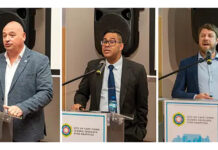Government should consider provisionally suspending the fuel levy for a longer period and increase the number of goods that are exempt from VAT or zero-rated to boost consumers’ disposable income in the current economic climate. This is according to Deloitte Africa, during a media panel discussion ahead of the national budget speech, expected to be delivered later this month.
“Owing to various challenges facing consumers in the country, such as the rising cost of food, high fuel prices, energy constraints, rising interest rates and other macroeconomic challenges – government should consider effective ways to protect the tax base while providing relief to consumers,” said Alex Gwala, Global Business Tax Services Leader, Deloitte Africa Tax & Legal.
“Government should provide tax relief to consumers in the short term amidst these challenges. If one looks at the country’s tax system and the proportionate contribution to the tax revenue collection, Personal Income Tax (PIT) accounts for the highest tax contribution followed by value added tax (VAT). Both these taxes affect consumers directly,” Gwala continues.
Last year, a paper released by the Organisation for Economic Cooperation and Development (OECD), on the South African economy proposed measures such as a reduction in the VAT rate to stimulate economic growth in the country.
Even if the VAT rate is not reduced, there are other factors that should be considered within the VAT system, possibly on a temporary basis, to stimulate economic growth. Deloitte argues that an example of a good that can be zero rated for VAT is bottled water which, in the wake of loadshedding which affects water supply, has moved from being a luxury item to a necessity.
“Government should also consider adjusting the PIT brackets and suspending the fuel levy. These proposals can be implemented as temporary relief measures until some of the economic challenges have been addressed. Government has suspended the fuel levy increase for 5 months from April to August last year, but Deloitte is now calling this to be a temporary but more sustained suspension.
Although these tax relief measures may seem counter-intuitive, these would lead to an increase in the households’ disposable income, thereby enabling households to increase their consumption spending, particularly on basic foodstuff,” Nwabisa Ruka – Associate Director: Business Tax, Deloitte Africa Tax & Legal adds.
Tax revenue collection is one of the key elements to fund government expenditure on various goods and services. The main government expenditure includes the distribution of the social income grant, as well as social distress relief grants payable to individuals in dire need and not able to meet their families’ most basic needs. The social relief grant system is largely dependent on tax collections to ensure that it is sustainable. One could argue that these tax relief measures would impact the overall tax collections. However, the tax relief measures would lead to an increase in disposable income in real terms, thereby increasing consumer spending on vatable and non-vatable items and increasing the economic activity in the country. In turn, the government would be able to increase its VAT collections to the extent that there is increased household spending on vatable items.
“Considering a range of factors at play, regarding the rising cost of living and declining income levels, it is unlikely that the government will consider an increase in taxes and/or tax rates. Instead, we expect
the government to consider ways to reduce the tax burden on consumers. We are keen to see what measures will be taken by the government to stimulate economic growth while protecting the tax base and providing relief through the tax system in the short term,” Nwabisa Ruka – Associate Director: Business Tax, Deloitte Africa Tax & Legal concludes.















